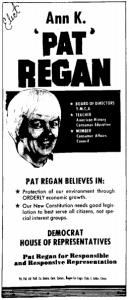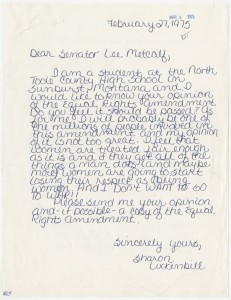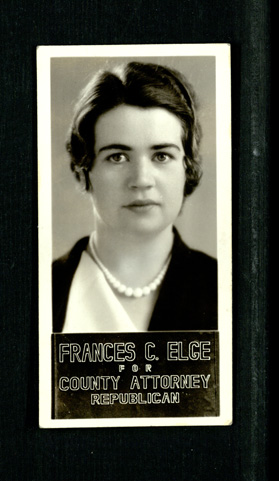
In 1972 Americans were engaged in a national debate over whether to ratify the Equal Rights Amendment to the Constitution. That debate informed discussion during Montana’s 1972 constitutional convention, and convention delegates enshrined equal protection in the “individual dignity” clause of its Declaration of Rights. Backed by this promise of equality, women’s rights advocates and members of the newly formed Montana Women’s Political Caucus, an organization of female state legislators, worked to reform Montana’s laws to erase sex discrimination. Through their efforts, the 1970s saw important steps toward equalization of Montana’s laws; however, the Montana Supreme Court’s conservative application of the individual dignity clause to sex discrimination undercut the potential for radical strides toward legal equality.
The “Declaration of Rights” in Montana’s 1889 Constitution had stated that “all persons are born equally free,” but the new constitution went far beyond that vague provision in its individual dignity clause. Working on the language for the state’s new constitution, delegate Virginia Blend of Great Falls proposed that the actual language of the Equal Rights Amendment be included in the Declaration of Rights. Instead the 1972 Constitution addressed the issue of gender equity in the constitution’s “individual dignity” clause, which guaranteed equal protection of the laws. Notable for its expansiveness, Article II, Section 4, of the 1972 constitution promised that “Neither the state nor any person, firm, corporation, or institution shall discriminate against any person in the exercise of his civil or political rights on account of race, color, sex, culture, social origin or condition, or political or religious ideas.” The clause links equality to human dignity and includes a long list of protected classes, making it, according to scholars Larry Elison and Fritz Snyder, the “most inclusive scheme of ‘equal rights’ of any known constitution.” Continue reading Working to Give Women “Individual Dignity”: Equal Protection of the Laws under Montana’s Constitution

